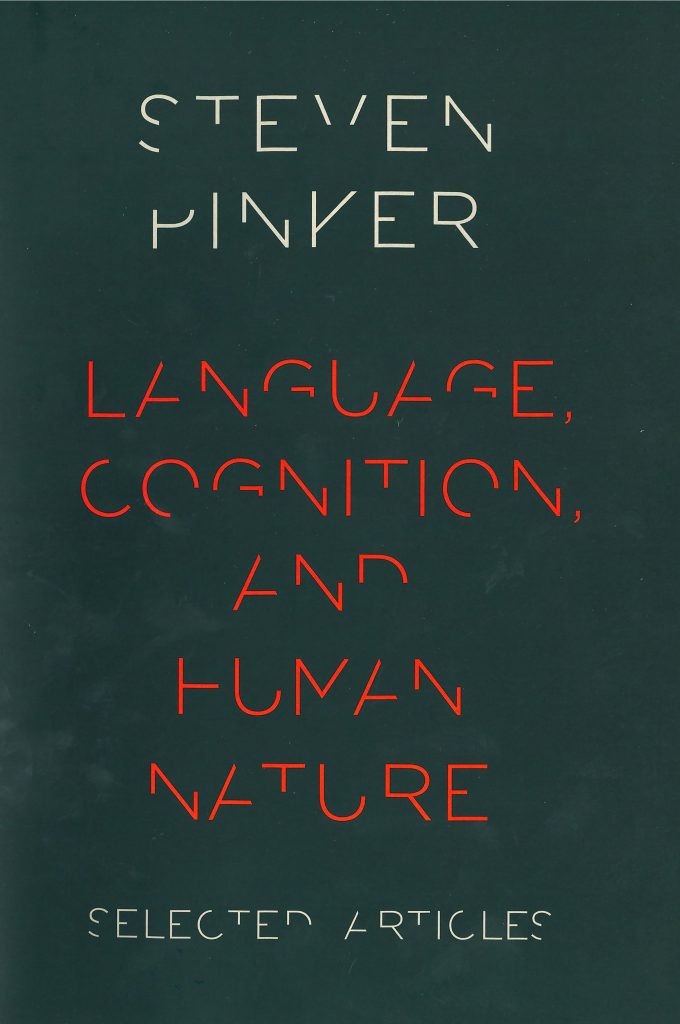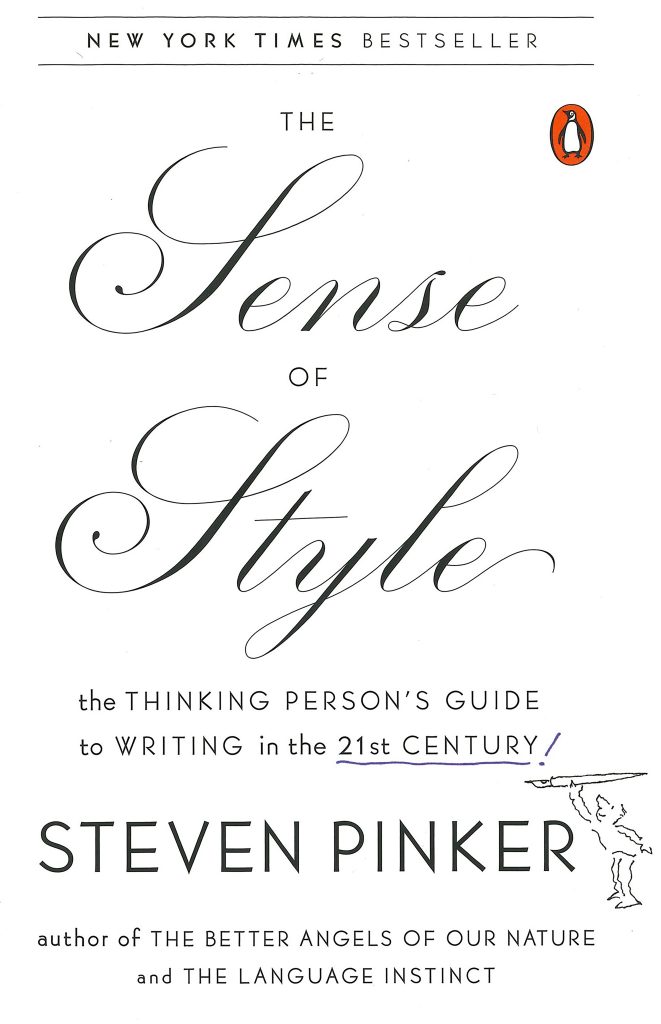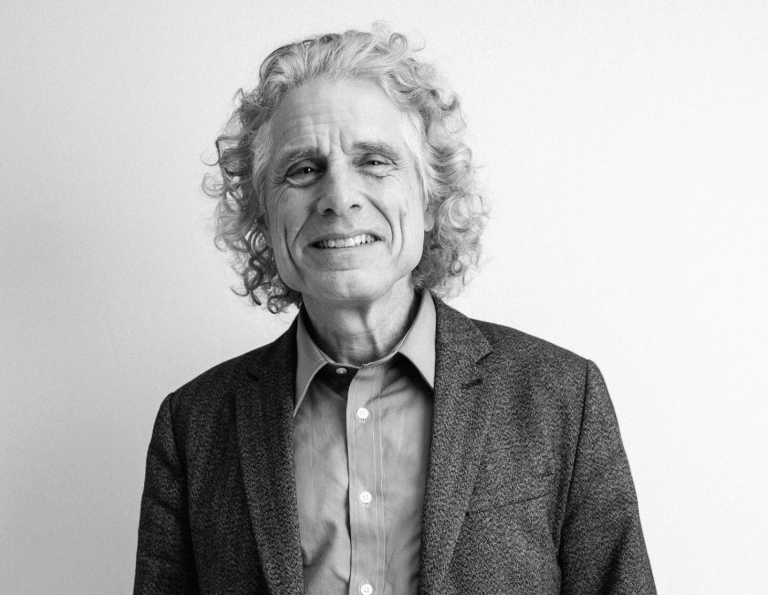

Steven Pinker, a prominent cognitive psychologist, linguist, and author, has dedicated his life to researching human nature. His academic work has challenged prevailing opinions about human behaviour and societal progress. We sat down with the renowned thinker to discuss the irreversibility of time and the impact that new digital worlds have on our own. Read on to discover Pinker’s opinion on the significance of privacy in a world that desires transparency, the future of humanism, and the ways that art and science are shaping our world.
hube: The irreversibility of time remains a fundamental truth. We see its presence in the material world and our intellectual and emotional experiences. What is your relationship to time?
Steven Pinker: The one recommended by Benjamin Franklin: “Dost thou love Life? then do not squander Time; for that’s the Stuff Life is made of.” I’m conscious of not wasting time, and therefore life. I try to avoid needless commutes, needless meetings, needless commitments, to spend as much of my precious time on earth as I can on activities that are pleasurable or meaningful.
Speaking of meaning, it’s the irreversibility of time that, in a very real sense, gives life meaning. As you hint, physicists tell us that events involving single objects are reversible (a film of one billiard ball clacking into another could be played backwards and you’d never know) but events involving complex, patterned assemblies are not (a film of a billiard ball scattering a triangular rack of balls would look comical if played backwards). The arrow of time is defined by entropy or disorder, which inexorably increases, giving time its arrow. But purposive agents like ourselves can deploy energy and information to create local zones of order (at the cost of increasing disorder in the system overall, that is, pollution). And that, in the broadest terms, also gives life its arrow. We use will and knowledge to push back against disorder, at least locally and temporarily, until it prevails, as it inevitably does, with our deaths.
h: The erosion of privacy is a significant aspect of modern society. Can you imagine a world where absolute transparency and access to information prevails, while withholding information becomes a crime?
SP: Not a world that anyone would want to live in. Social harmony depends on benign fictions: that family, friends, and lovers are unstintingly loyal and generous; that authorities deserve the respect that comes with their station; that we are all equal in dignity and virtue and worth. We prosper with these white lies, but we also must occasionally share subversive truths. Sometimes we share these impolitic thoughts to challenge norms that ought to be challenged; more often, we share them to relax and bond. And so we have the unguarded observations, delicious gossip, politically incorrect humour, naughty jokes, and wicked thoughts that are the stuff of intimate conversation. As Pascal observed: “Few friendships would endure if each party knew what his friend said about him in his absence.” The disappearance of privacy would be a totalitarian nightmare.
h: New platforms and modes of communication provide users with access to what seems like an unlimited number of people. These new digital spaces have significantly modified the ways we interact today; both in the digital and the physical world. How might such changes to our interactions affect our future? Will digital worlds replicate the problems that plague our physical world, or will they develop new systems and ethics in order to avoid them?
SP: It depends on the tacit rules that govern those digital worlds. The best of these worlds are virtual communities in which people are brought together by common passions and can set aside superficial differences and disadvantages—as the cartoon in the early days of the web put it, “On the internet, no one knows that you’re a dog.” The worst of them equip people with little dart guns with which they can injure strangers in anonymity, without the face-to-face cues and reputational fears that inhibit blatant social aggression in real worlds. Or they facilitate mobbing, in which a target is singled out for collective denunciation and humiliation like Emmanuel Goldstein in Nineteen Eighty-Four.
h: Do you believe that hierarchy is a necessary condition for the existence of society?
SP: Not in the sense of a pecking order or dominance hierarchy. The kind of hierarchy that is necessary is a hierarchy of organisation: large cooperative units are composed of smaller ones, which are composed of still smaller ones, and so on—think of the programs, departments, divisions, and schools within a university, or the wards, municipalities, counties, states, and nations in political organisation. At each level, the unit may be coordinated by an administrator, but he or she should be bound by fiduciary duties to act in the interests of the whole. The challenge for modern institutions is to prevent a hierarchy of organisation, which is good, from devolving into a hierarchy of dominance, which is bad.
h: Virtual platforms, such as computer games and metaverses, transports users’ consciousness to spaces with different social and ethical standards. In the battle for humanity’s most precious resource, human time, which realm will triumph: the digital or reality?
It’s not the first time we’ve dealt with this problem. The same concerns were raised about the novel. I remember when a bookish child was criticised for immersing herself in stories instead of engaging the real world. I don’t think that digital worlds will “defeat” reality, since we all put a value on authenticity and reality—people strive to see an original painting, not an indistinguishable reproduction, and they buy exorbitant tickets to hear Bruce or Paul or Beyoncé, not a lifelike simulation. But virtual platforms will definitely make inroads—we just don’t know how far.
h: Social change often involves ethical and aesthetic innovation. From your perspective, how do ethics and aesthetics interact?
SP: Aesthetics can provide pleasures that bring people from diverse nations and cultures together in common enjoyment—think of “musical ambassadors” like Louis Armstrong, Leonard Bernstein, Pete Seeger, and Yo-Yo Ma. Fiction can mobilise people’s emotions of empathy and compassion, encouraging them to see the world through the eyes of people unlike them. The historian Lynn Hunt has suggested that the Enlightenment “humanitarian revolution,” in which barbaric practices like slavery and sadistic corporal and capital punishment were abolished, was accelerated by the popularity of the realistic novel. Conversely, the experience of horror conveyed by art—Goya’s drawings of gruesome mutilations during the Napoleonic wars, Harriet Beecher Stowe’s Uncle Tom’s Cabin before the abolition of slavery, the novel and movie All Quiet on the Western Front after World War I, Picasso’s Guernica, the anti-war songs and movies of the 1960s—can mobilise apathetic audiences to appreciate the enormity of human suffering.

